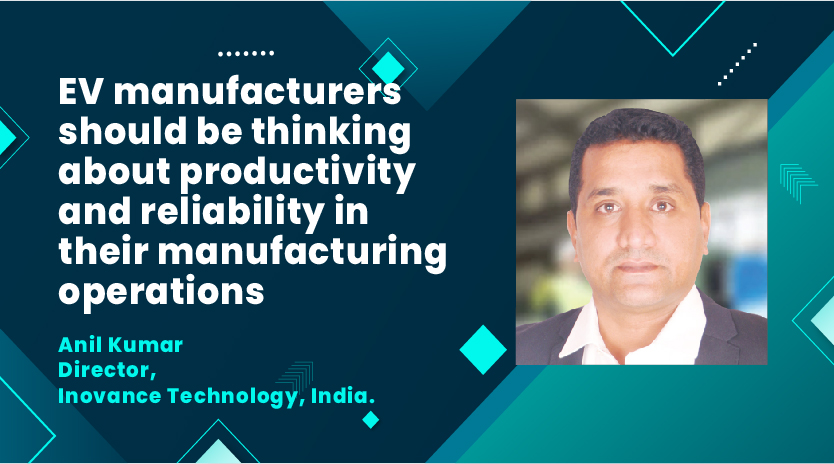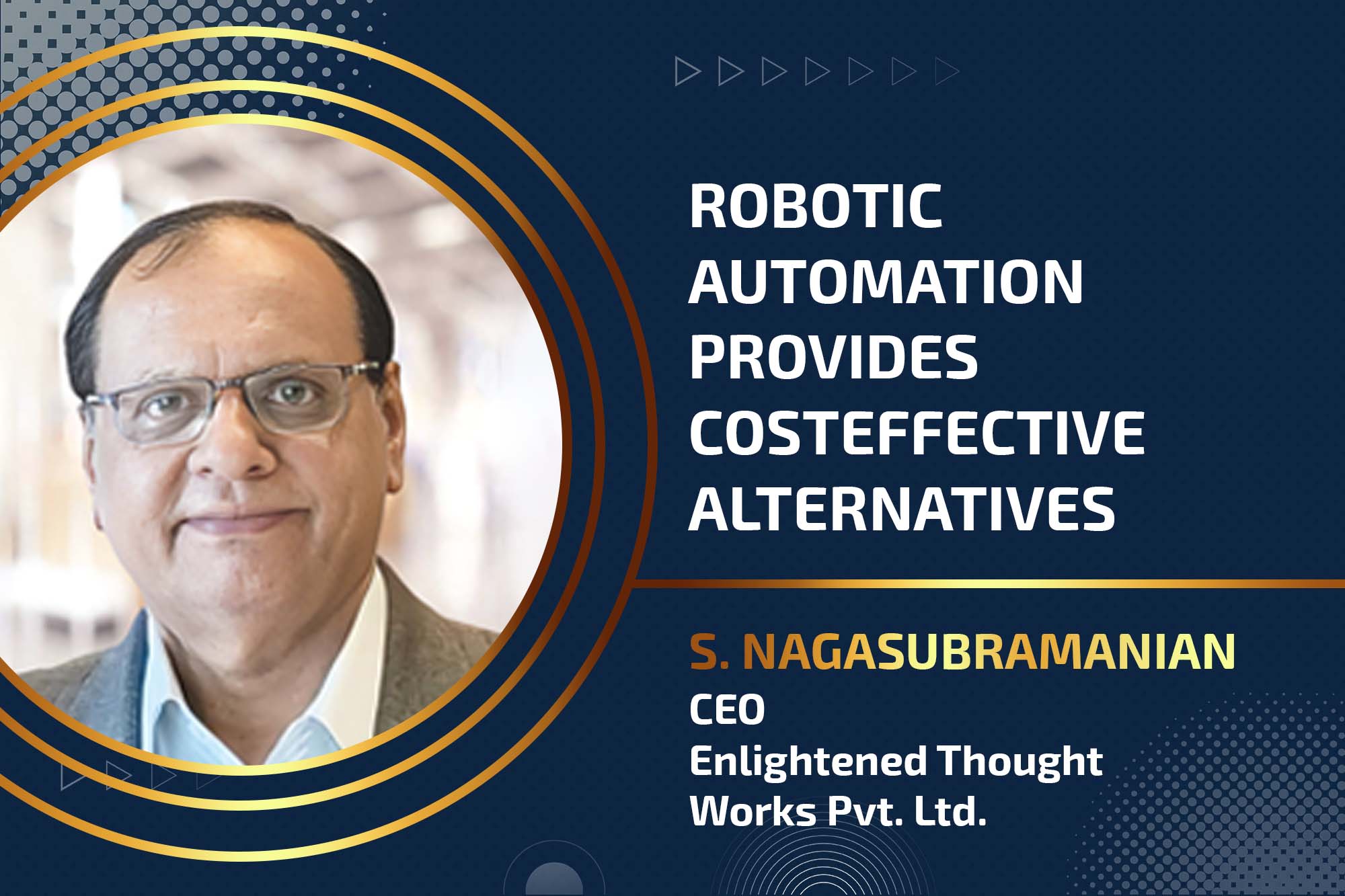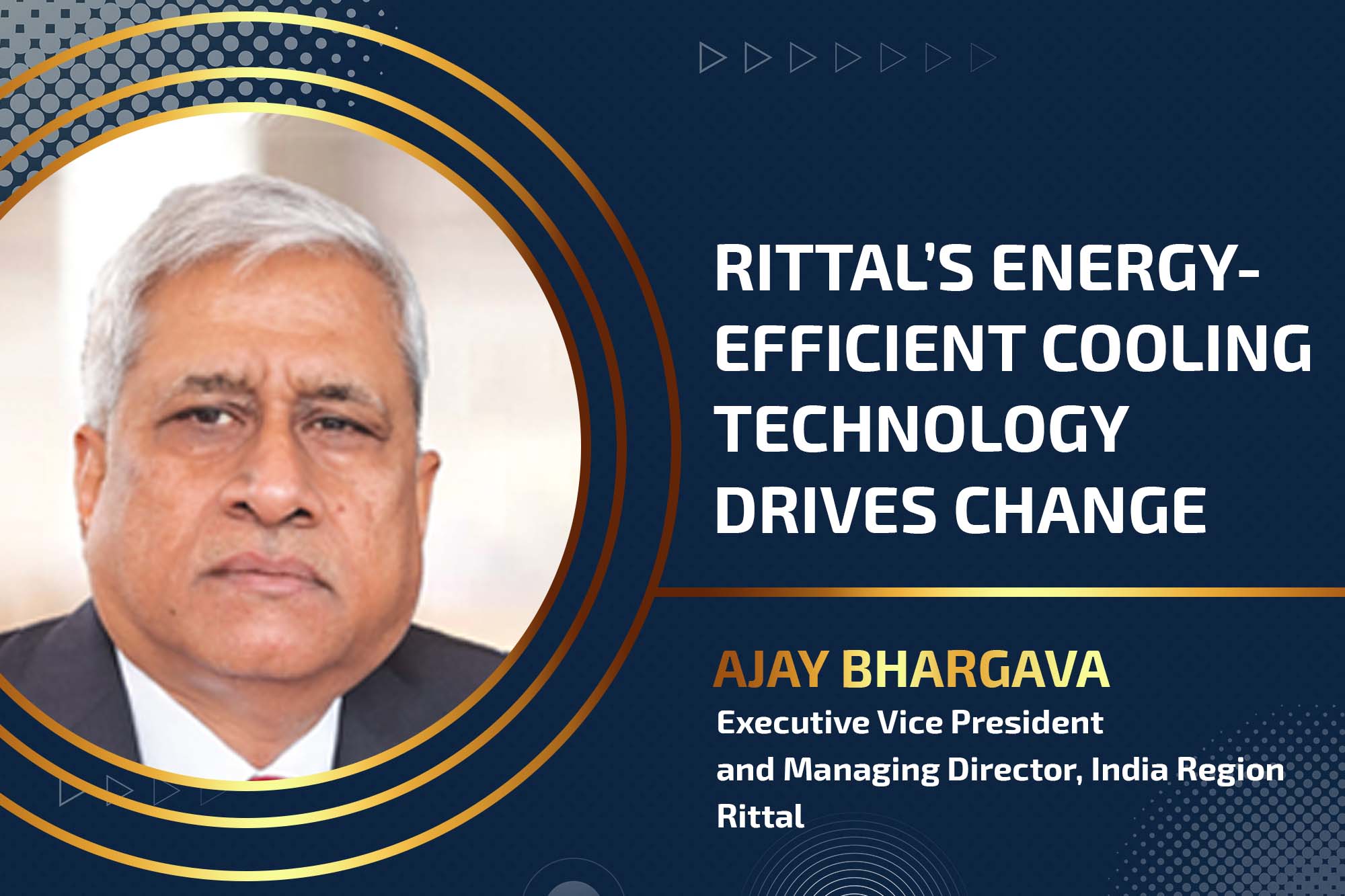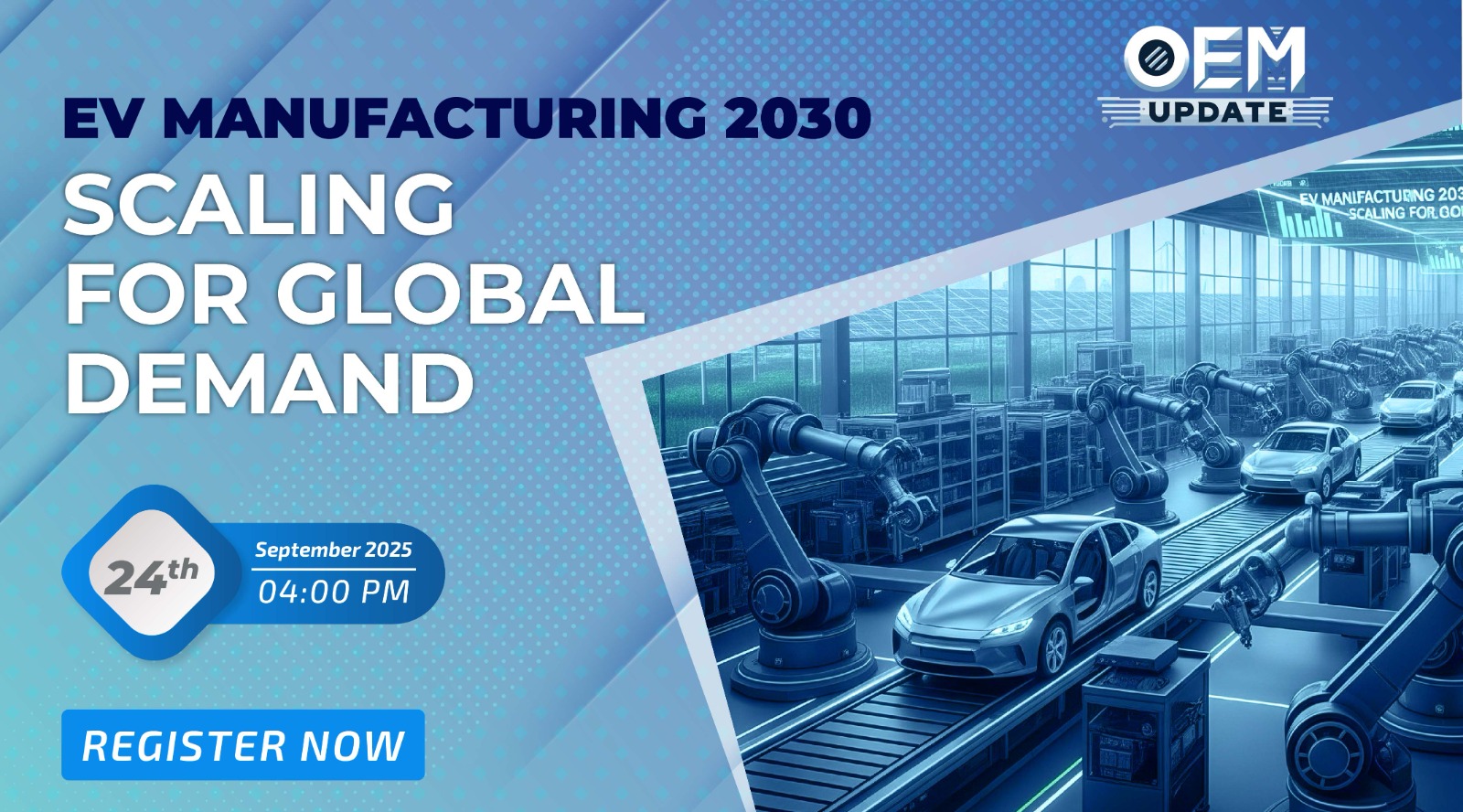EV manufacturers should be thinking about productivity and reliability in their manufacturing operations
By OEM Update Editorial February 9, 2023 3:46 pm IST
The move to EVs will also transform and disrupt vehicle production value chain.
Concerns have grown over the environmental impact of traditional petrol and diesel vehicles, including the effects of pollution on the ozone layer, rising global temperatures, poor air quality and related health issues, and a range of other issues. The electric vehicle (EV) revolution is perceived as the answer to some of these problems. Electric vehicle sales in India witnessed an exponential growth of 210 percent in 2022, and the Indian government is offering a range of incentives to all buyers to actively encourage the take up of EVs throughout the country as part of a focus on sustainable and clean transport solutions. EVs’ low running and maintenance costs make them affordable compared with petrol or diesel vehicles, and they will play an important role in transforming the transportation industry.
EVs are transforming the automotive industry
Growing awareness among the general public about the use of electric vehicles and the cost benefits they offer has led to exponential growth in EV sales in the last year. This demonstrates a very real shift within the automotive industry. The entire system of transportation is changing with the development of EVs. The move to EVs will also transform and disrupt the vehicle production value chain. Many components needed for internal combustion engines will no longer be required. Manufacturers will have to learn to make other new components necessary for EVs that were never needed for internal combustion engines.
Product and solutions for EV manufacturing
Having such a strong team and product range in India has helped us focus more specifically on the EV industry. Our product portfolio includes solutions for 3 major EV applications passenger vehicles, commercial buses and logistics vehicles. More specifically, we offer a 5 in 1 Inverter for Battery Electric Vehicles, which is specially designed for the electric bus industry (the product series applies to electric buses from 6‒18 meters); a 3 in 1 Auxiliary Power Unit Controller specially designed for commercial electric vehicles, integrating an electric power steering controller, an air compressor controller and a DC/ DC for 24 VDC battery charging with the following features – small size, solid environmental robustness, easy installation and long lifetime; and a direct-drive motor for electric buses, which can be used as a power source for commercial electric vehicles and has been developed with high-power density, strong environmental robustness, long lifecycle high safety, and better efficiency than similar products.We have a huge range of products for the automation segment for EV manufacturing, and we aim to become a leading name in this field.
Government’s objective in supporting the automotive industry
The main reason for the government supporting the automotive industry is to increase demand, as the automotive industry has seen major setbacks, particularly in 2020, because of the COVID-19 pandemic. However, it slowly started recovering in 2021, and the Indian government announced several schemes in the 2021 budget, including investments in road infrastructure. In this budget, the government allocated 1.18 Lakhs crore for the Ministry of Roadways, Transport and Highways, which will ultimately generate increased employment opportunities in rural areas and greater demand for commercial vehicles.
Semiconductor crisis: sustaining its availability
The ongoing semiconductor crisis comes from strong demand and a limited supply of semiconductors. It affects a wide range of industries, including the automotive industry, as semiconductors are essential to creating sophisticated electronic systems. Manufacturers and product designers should look at new ways of adapting manufacturing processes in response to the crisis, looking at new and innovative ways of redesigning their products to reduce costs and meet customers’ needs in line with long-term stock availability.
Industrial automation role for EV manufacturing
Like in all manufacturing segments, whether EVs, steel, or food, industrial automation has a vital role and a role that can only grow. EV manufacturers will be most concerned about productivity and reliability when implementing automation solutions. In the specific case of India, we have a fast-growing economy, and we are seeing a trend of India moving towards becoming more of a global manufacturing hub. As we have seen in China, the likely result of this will be that labour costs will go up over time, fuelling the incentive to automate processes wherever possible.
Cookie Consent
We use cookies to personalize your experience. By continuing to visit this website you agree to our Terms & Conditions, Privacy Policy and Cookie Policy.
















